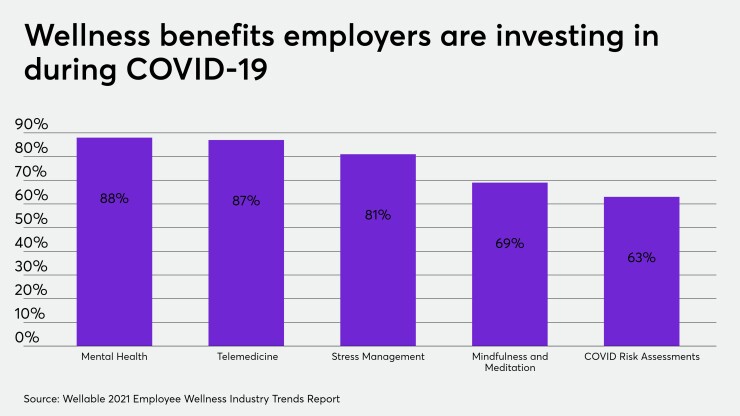Voluntary benefits are playing a more critical role in helping employees achieve health and financial security.
COVID-19 has reinforced the importance of coverages like life and disability insurance, and has also shown the need for care benefits following delayed screenings or treatments, such as dental or cancer insurance. As the economy begins to recover, business owners should make sure to promote these and other voluntary benefits to their employees, who now have heightened awareness of their health and financial vulnerabilities.
The surge of life insurance
Even before COVID-19, there was an average life insurance coverage gap of $200,000 per household, according to LIMRA, meaning most people are woefully underinsured based on the needs and expenses of their families. As the pandemic wears on, new interest in life insurance or additional coverage has risen substantially. The industry education group Life Happens conducted a study in 2020 and found that 25% of respondents purchased life insurance for the first time because of COVID-19. People have become more aware of the need for life insurance, and are increasingly concerned with caring for and financially protecting their families.
Disability insurance is always valuable
Workers need income protection in the event of a major illness or injury. According to the Council on Disability Awareness, about half of American adults said they could not pay an unexpected $400 bill and did not have enough savings to cover three months of living expenses. During the pandemic there have been many people who filed for short-term disability while battling COVID-19. But other illnesses and injuries still happen and will continue after the pandemic ends. Disability insurance also provides many support services that help employees during a difficult time, such as employee assistance programs and vocational rehabilitation that helps them return to work. The coverage also provides employers with accommodation support services to ensure they are complying with the ADA.
The importance of dental and vision
Although they tend to linger in the background, dental and vision are two benefits that see strong enrollment because they are low cost and habitually used by most people. In 2020 many people had to postpone or skip scheduled dental and vision care due to site closures. This may contribute to the need for additional care and maintenance going forward, so maintaining employees’ insurance coverage is essential.
Closing healthcare coverage gaps with supplemental benefits
Supplemental health benefits help cover the out-of-pocket costs that can come with a major health diagnosis. They can be instrumental in alleviating additional medical or living costs during a major health event, and bring an overall sense of stronger financial protection to employees who enroll. These additional costs could be medical bills not covered by health insurance or simply other expenses, like a mortgage payment, that increase financial strain during a difficult time. Supplemental health benefits include critical illness, which covers conditions like cancer, heart disease and stroke or even COVID-19; accident insurance; or hospital indemnity, which pays a fixed amount based on length of hospitalization. These payments are offered in a lump sum to be used however the policyholder wishes.
These coverages all play a pivotal role in the health and wellness of employees and their families. Now that employees have heightened awareness of the financial risks associated with their health, it’s more important than ever to make sure that you continue to offer these benefits, and make sure you are communicating their value and availability to employees in a meaningful way.






